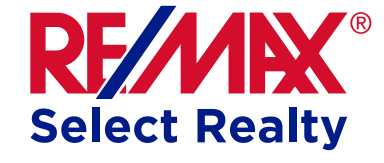Posted on
January 16, 2025
by
Darius Martinez
When it comes to vibrant urban centers with distinct personalities, Vancouver, British Columbia, and Atlanta, Georgia, stand out as fascinating contrasts. Having lived in both cities, I’ve come to appreciate their unique charms, challenges, and what they offer to residents and visitors alike. Let’s dive into how these two metropolitan areas differ in climate, culture, lifestyle, and real estate.
1. Climate: The Rainy vs. The Humid
Vancouver is known for its temperate climate, marked by mild, rainy winters and pleasantly warm summers. While locals might grumble about the grey skies and consistent drizzle, this coastal city’s weather fosters lush greenery year-round. Summers in Vancouver are a delight, with average temperatures hovering around 22°C (72°F).
In contrast, Atlanta experiences a humid subtropical climate. Summers are hot and humid, with temperatures often climbing above 30°C (86°F). Winters are cooler but brief, and snowfall is rare. Spring and fall in Atlanta bring stunning foliage and are arguably the most comfortable seasons.
2. Culture: Laid-Back vs. Southern Hospitality
Vancouver’s culture is shaped by its Pacific Northwest vibe. It’s a city that prides itself on environmental consciousness, diversity, and outdoor activities. The pace is relatively laid-back, and the city’s proximity to mountains and water makes it a haven for adventure enthusiasts.
Atlanta, on the other hand, is a hub of southern hospitality and rich history. As the cradle of the Civil Rights Movement, Atlanta exudes a sense of resilience and progressiveness. The city’s vibrant arts scene, music culture—especially hip-hop—and renowned southern cuisine make it a cultural powerhouse.
3. Lifestyle: Outdoor Adventures vs. Urban Energy
Living in Vancouver often means integrating outdoor activities into daily life. Whether it’s skiing in Whistler, hiking Grouse Mountain, or kayaking in English Bay, residents have unparalleled access to nature. The city’s cycling and pedestrian-friendly infrastructure further encourage an active lifestyle.
In Atlanta, the lifestyle leans toward urban energy and community gatherings. Festivals, sporting events, and concerts are staples of life in Atlanta. The city’s expansive layout and reliance on cars make it less pedestrian-friendly than Vancouver, but the close-knit neighborhoods offer a strong sense of community.
4. Real Estate: Costly Condos vs. Southern Sprawl
Vancouver is infamous for its high real estate prices, often ranking among the most expensive markets in North America. The city’s focus on high-density housing has resulted in a landscape dominated by condominiums, with single-family homes being a rare luxury.
Atlanta offers a stark contrast with its more affordable housing market and sprawling suburbs. While urban areas like Midtown and Buckhead have seen significant growth in luxury apartments and condos, Atlanta’s real estate market remains accessible compared to Vancouver.
5. Transportation: Public Transit vs. Car Dependency
Vancouver’s SkyTrain system and extensive bus network make it one of Canada’s most transit-friendly cities. Many residents rely on public transit or biking for their daily commutes.
Atlanta, however, is predominantly car-dependent, despite efforts to expand its MARTA transit system. Traffic congestion is a well-known challenge for Atlantans, but the city’s sprawling design makes driving a necessity for most residents.
Which City Wins?
The choice between Vancouver and Atlanta ultimately depends on your priorities. If you value natural beauty, outdoor activities, and a mild climate, Vancouver might be your ideal city. However, if you’re drawn to cultural richness, southern charm, and a more affordable lifestyle, Atlanta could be the better fit.
Having experienced both cities, I’ve found that each offers something unique. Vancouver’s proximity to the Gulf Islands resonates with my love for fishing and boating, while Atlanta’s vibrant energy and warm community spirit remind me of my time in the southern U.S. Regardless of where you choose to call home, both cities have much to offer—it’s just a matter of which feels like home to you.










